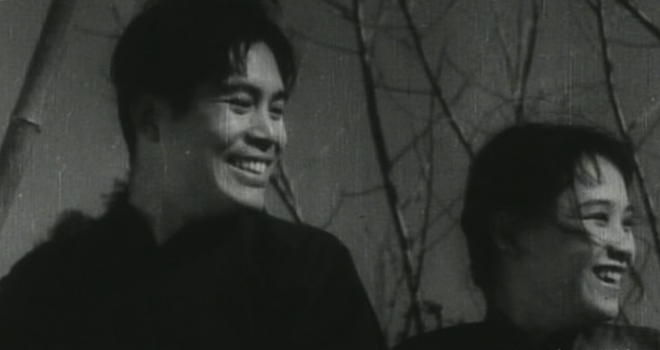The story of the removal of humiliating social obligations for the Harijans (they were considered pariahs and obliged to carry a broom behind them to wipe off offensive footprints). The film uses the ‘Bhavai’ style (an endangered expression of popular drama in Gujarat and a synthesis of several art forms reflecting the social context) and a point of view totally inspired by Brecht.
A group of distressed children ask an old man why the huts are being burnt down. To calm them down, the old man tells a story in the Bhavai style. When he comes to the Harijans’ confrontation with their oppressors, he shows that these outcasts are capable of forgetting their fears and fighting for their rights.
“In Indian films, the alienation of the rural class from the urban way of life has become a cliché. What we want is a synthesis of the two, with our past and our heritage. The aim of a film should not be to alienate people. I chose a popular form so that people would understand. My film traces the history of the social blight that is the notion of the outcast in Gujarat and its significance today.”
KETAN MEHTA



